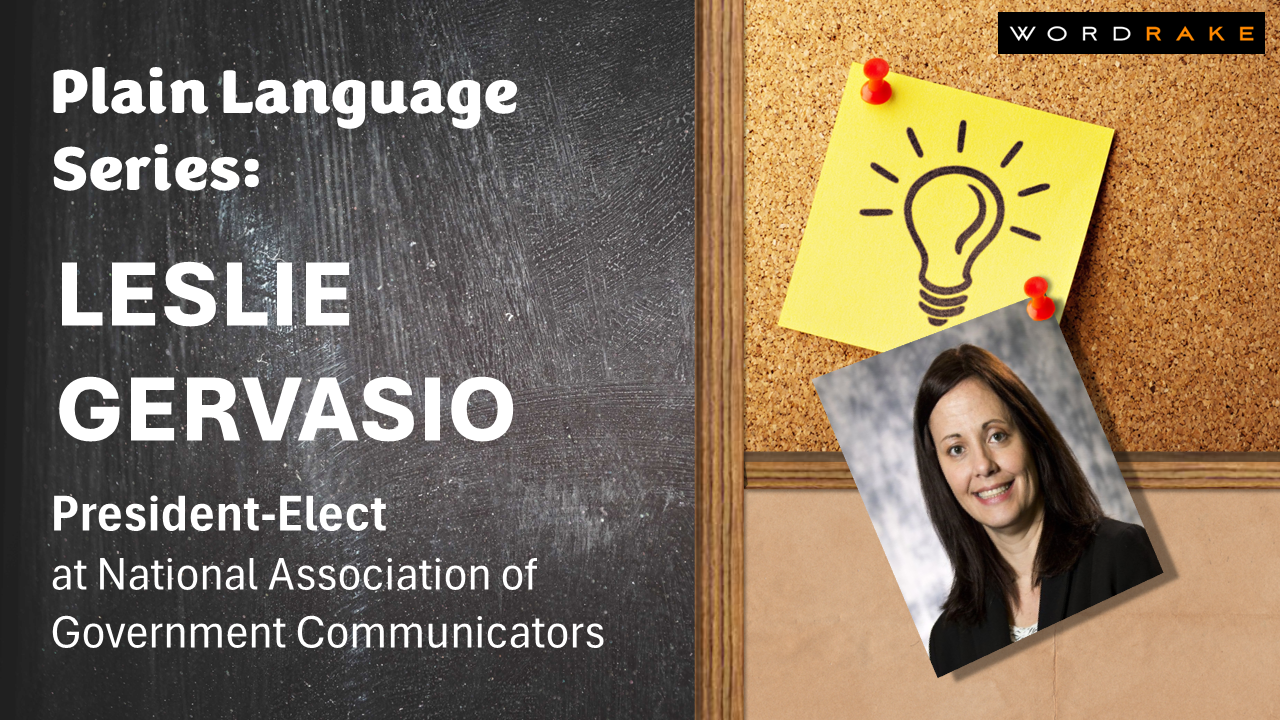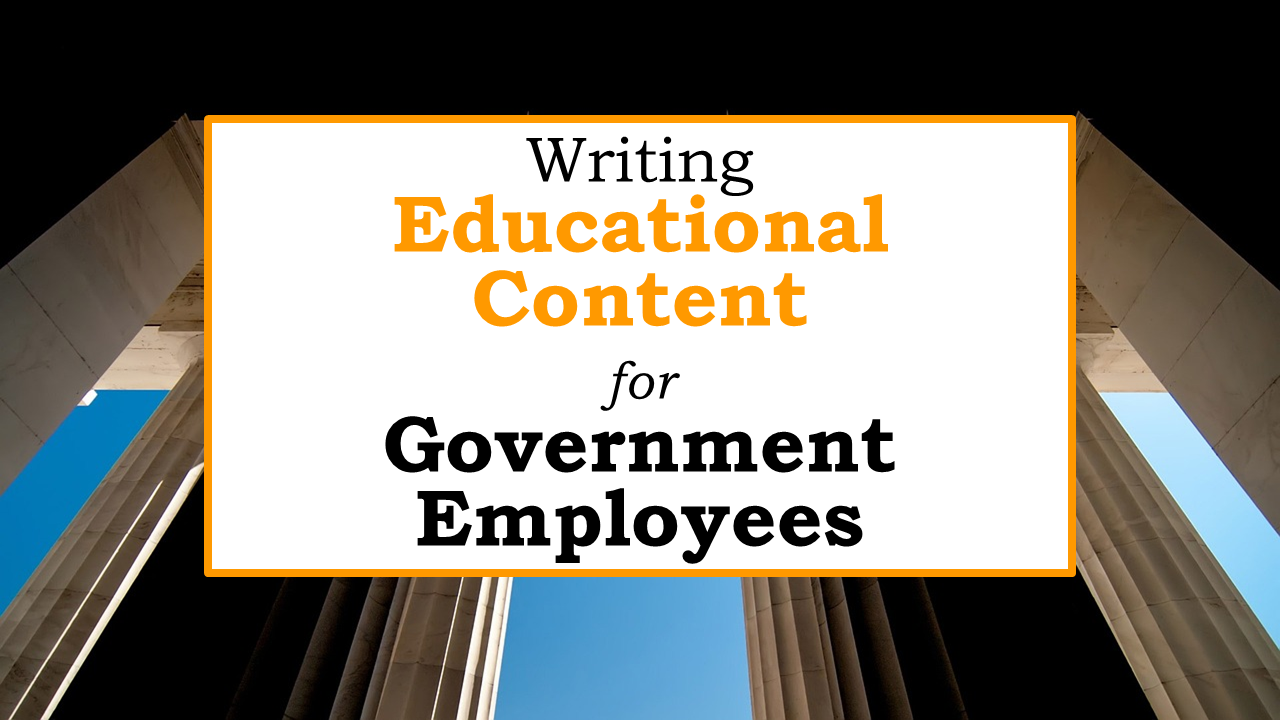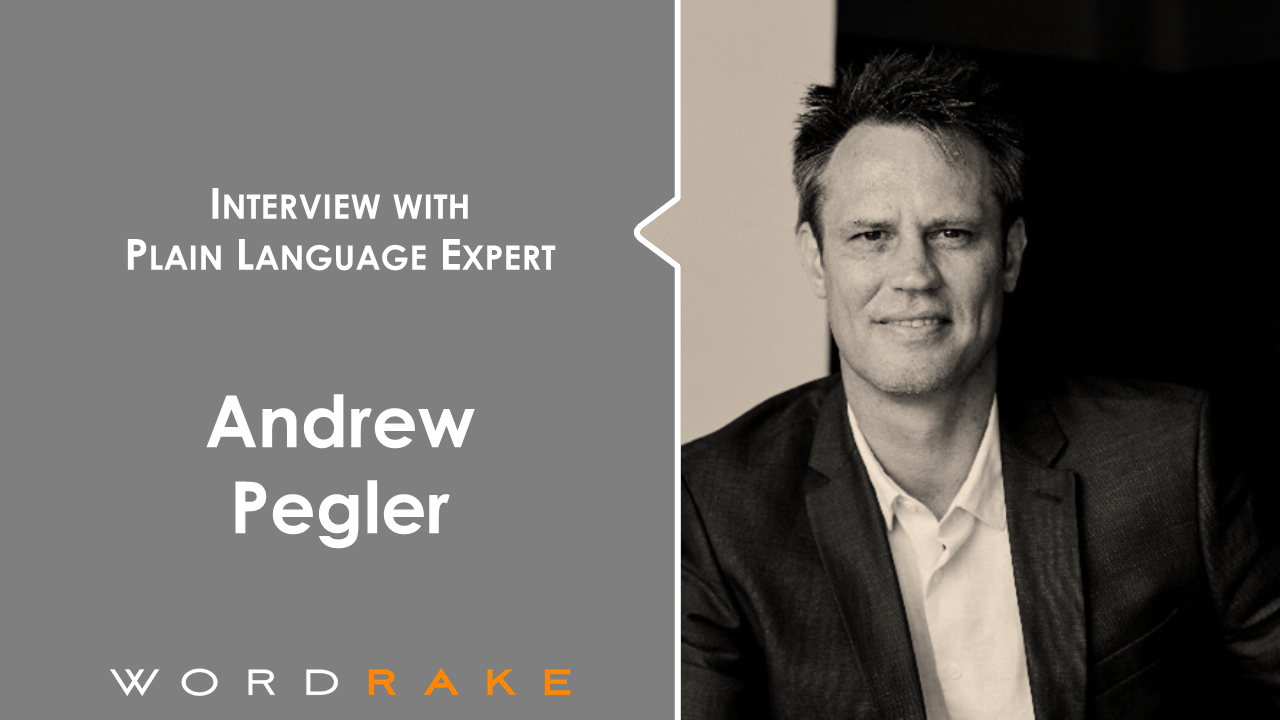Even with 20 years of writing, reporting, and government communications experience under her belt, National Association of Government Communicators (NAGC) President-Elect Leslie Gervasio finds legalese difficult to understand. Since the average American reads at a middle school level, Leslie knows how important it is to produce clear, readable public facing documents, and shared her thoughts with us for International Plain Language Day.
What is your role, and how is it connected to plain language?
I am a senior public engagement specialist who collaborates with state and local government clients in the transportation industry. My primary goal is to educate elected officials and the public about complex transportation projects that affect their communities and explain why they are important. Transportation is sometimes challenging to write about (who understands what an accelerated bridge construction project is, for example?!), so writing in plain language can limit frustrations and boost credibility.
What prompted your interest in plain language?
Ever since I began my career two decades ago as a newspaper reporter, I’ve been trained to write stories that are easy to understand, avoiding jargon, slang, and complex sentences. With the internet becoming today’s primary source of information, people still expect to receive accurate, easily understandable information - on demand.
As someone who loves to read, it’s also disheartening to see people who are willing to learn something not be able to understand it. Whether reading a manual to learn how to assemble a product, listening to a podcast, or learning about a road project near your home, an individual should understand the message the first time it’s read or heard.
What’s the most convincing statistic you can share to convince professionals to use plain language?
The average American reads at a 7th or 8th-grade level, and this number hasn’t changed much over the years. Complex information will be confusing and frustrating, resulting in inaction. This is why simple words and short sentences are important.
How does plain language impact access to justice?
The US has a complex justice system even for educated and trained attorneys. According to the US Department of Justice, 70% of inmates in America’s prisons cannot read above a fourth-grade level. These reading disparities also run along racial lines. Legalese is notoriously difficult to understand. Twenty-three seasons of Law and Order are under my belt, and I still can’t easily recall words like adjudication or peremptory challenge. Plain language removes barriers and makes it easier for people to make educated decisions about their rights.
Where will consumers commonly encounter the most confusing language?
We need to provide consumers with a better understanding of their healthcare and legal rights. But hands down, “terms and conditions” documents are the most confusing and are skimmed at best, but most likely, never read thoroughly. Yet, they often contain loopholes or other clauses that can have implications.
What’s the most important—yet simple—change professionals can make to consumer-facing documents to improve understanding?
Writing in short sentences is best for conveying complex information. It breaks up information into bits that are easier to process.
What’s the biggest danger to consumers if they don’t understand what is being communicated to them?
Consumers could be impacted legally. For example, an individual may sign a legal document without understanding the consequences or impacts.
Beyond writing with simpler words and shorter sentences, what else can professionals do to communicate better for the public’s benefit?
Ensure that acronyms are spelled out, and you aren’t writing a narrative filled with alphabet soup. Also, avoid metaphors, jargon, and slang, which can add confusion and complexity. I work in the transportation and engineering field, where it's easy for that to happen, which creates confusion and frustration. Even if you aren’t the strongest writer, investing in tools like WordRake will help you tell a story that will get heard.
What’s one piece of advice that you would offer to help a professional start using plain language?
Habits can be difficult to break, especially when it comes to writing. It’s important to keep your readers in mind and write for them, rather than just yourself. When in doubt, testing your message with an external audience is a good idea. Using a tool like WordRake can also help you improve your writing style. Attend professional development opportunities that will help you learn more about improving your writing style.
About Leslie Gervasio
Leslie Gervasio is a senior public engagement specialist at a Pennsylvania-based engineering company. She specializes in public engagement and strategic communication management for state and municipal clients. Overall, Gervasio has more than 20 years of state and local government experience. She spent almost a decade as the director of public affairs for the PA State Association of Boroughs, where she also served as the managing editor of the Borough News magazine.
Her experience includes serving as a deputy director of the Office of Public Liaison to former Governor Ed Rendell, where she led statewide community outreach efforts. She also served as press secretary for the PA Department of Community and Economic Development, as a project manager in the PA House of Representatives, and as a Main Street Manager for the City of Allentown. Upon graduation from college, she was a newspaper reporter in western PA, when she discovered her passion for government reporting.
Gervasio earned a Bachelor of Science in Communication and a Bachelor of Arts in Spanish from Clarion University of Pennsylvania. She also studied Spanish at the Universidad de San Jose, Costa Rica. Leslie is the president-elect of the National Association of Government Communicators and the Pennsylvania Public Relations Society. Personally, she advocates for animal welfare initiatives. You can find her on LinkedIn.
About WordRake and International Plain Language Day
Plain Language experts Cheryl Stephens and Kate Harrison Whiteside created International Plain Language Day on October 13, 2011 to celebrate the first anniversary of the signing of the Plain Language Act in the United States. Since then, plain language enthusiasts take time each year to celebrate the gains the movement has made.
In October 2022, WordRake celebrated Plain Language Day by releasing their new Simplicity editing mode to help comply with plain language laws. As firm believers in the importance of clear communication, WordRake celebrates October 13th by highlighting experts and leaders in the plain language field. To see how WordRake can help you simplify your writing, take a 7-day free trial today!







